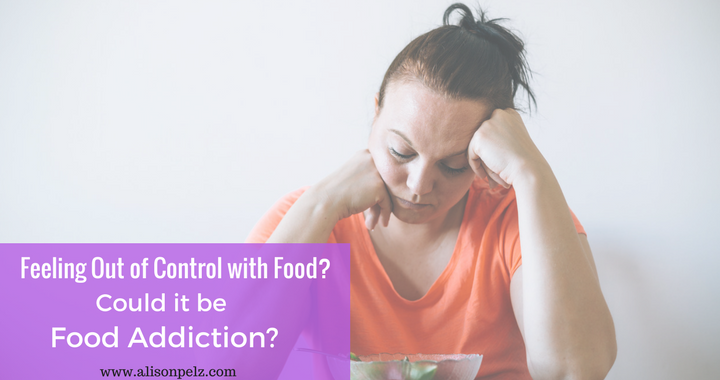There is a lot of controversy around food addiction…
Among clinicians, there is much debate if food addiction is a bonafide diagnosis. Some believe absolutely food can be addictive. In fact, science shows that our brains are activated in the same way it is with drugs when we eat highly palatable, good tasting food.
People who describe themselves as food addicts have a compulsive drive to eat, even when they are not hungry. Eating, perhaps, to soothe emotions or to “check-out”. Short-term overeating feels good. But, long-term it can feel pretty uncomfortable. There is a sense of loss of control described by people who feel like they are food addicts. Furthermore, attempts to stop overeating are made, but with little success. Sounds similar to drug or alcohol addiction, right?
We need food to stay alive, unlike drugs or alcohol.
This is a primary reason that is cited by those who don’t believe we can be addicted to food. Furthermore, our brains may become activated similarly to drugs & alcohol when we eat certain foods, as a reward pathway. By design, we get pleasure from eating so we will seek out more food (to sustain us).
Additionally, most people who feel out of control with food are able to stop eating or ignore foods that is less appealing. Most people who struggle with drug addiction, for example, consume all drugs until they are gone. Not so with food.
If you are reading this, whether you think food addiction is a valid term or not, my guess is that you feel out of control with food. You may not buy certain foods fearing that you will eat it all in one sitting or over a day or two. Or maybe you plan to buy certain foods just to binge on them. Or you buy certain foods and promise yourself that you will not binge on them, like you have in the past. Food is often consumed in solitude. Guilt and shame are feelings often experienced with having a loss of control with food.
What to do if you feel like you are addicted to food:
- Seek professional help. Binge eating disorder, bulimia nervosa and other eating disorders all have a component of loss of control with food. If you have an eating disorder you will need a treatment team to help you heal from your eating problems. If you don’t meet the criteria for a full-blown eating disorder professional help is still warranted to help with your eating problem.
- Don’t try to diet your way out of your eating problem. Dieting makes the problem worse and is a risk factor for developing a full-blown eating disorder. My guess is that if you are reading this you have tried several diets in the past with short-term success (please click here to learn why diets fail).
- Do read self-help books such as Intuitive Eating. Studies show that self-help or supported self-help (with a counselor) can be effective at treating some eating problems (not eating disorders, however).


